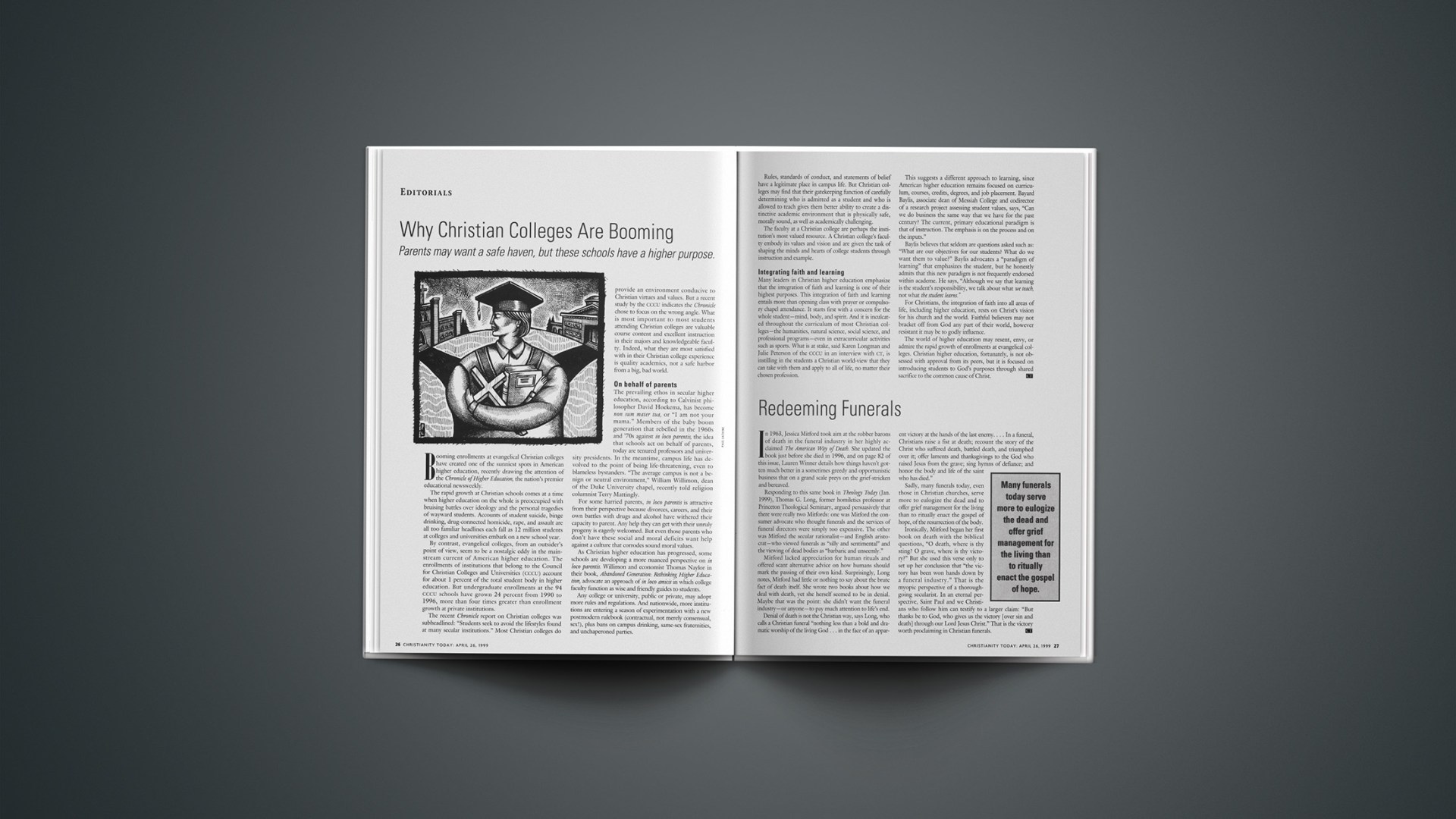In 1963, Jessica Mitford took aim at the robber barons of death in the funeral industry in her highly ac claimed The American Way of Death. She updated the book just before she died in 1996, and on page 82 of this issue, Lauren Winner details how things haven’t gotten much better in a sometimes greedy and opportunistic business that on a grand scale preys on the grief-stricken and bereaved.
Responding to this same book in Theology Today (Jan. 1999), Thomas G. Long, former homiletics professor at Princeton Theological Seminary, argued persuasively that there were really two Mitfords: one was Mitford the consumer advocate who thought funerals and the services of funeral directors were simply too expensive. The other was Mitford the secular rationalist—and English aristocrat—who viewed funerals as “silly and sentimental” and the viewing of dead bodies as “barbaric and unseemly.”
Mitford lacked appreciation for human rituals and offered scant alternative advice on how humans should mark the passing of their own kind. Surprisingly, Long notes, Mitford had little or nothing to say about the brute fact of death itself. She wrote two books about how we deal with death, yet she herself seemed to be in denial. Maybe that was the point: she didn’t want the funeral industry—or anyone—to pay much attention to life’s end.
Denial of death is not the Christian way, says Long, who calls a Christian funeral “nothing less than a bold and dramatic worship of the living God … in the face of an apparent victory at the hands of the last enemy . …In a funeral, Christians raise a fist at death; recount the story of the Christ who suffered death, battled death, and triumphed over it; offer laments and thanksgivings to the God who raised Jesus from the grave; sing hymns of defiance; and honor the body and life of the saint who has died.”
Many funerals today serve more to eulogize the dead and offer grief management for the living than to ritually enact the gospel of hope.
Sadly, many funerals today, even those in Christian churches, serve more to eulogize the dead and to offer grief management for the living than to ritually enact the gospel of hope, of the resurrection of the body.
Ironically, Mitford began her first book on death with the biblical questions, “O death, where is thy sting? O grave, where is thy victory?” But she used this verse only to set up her conclusion that “the victory has been won hands down by a funeral industry.” That is the myopic perspective of a thoroughgoing secularist. In an eternal perspective, Saint Paul and we Christians who follow him can testify to a larger claim: “But thanks be to God, who gives us the victory [over sin and death] through our Lord Jesus Christ.” That is the victory worth proclaiming in Christian funerals.
Copyright © 1999 Christianity Today. Click for reprint information.










